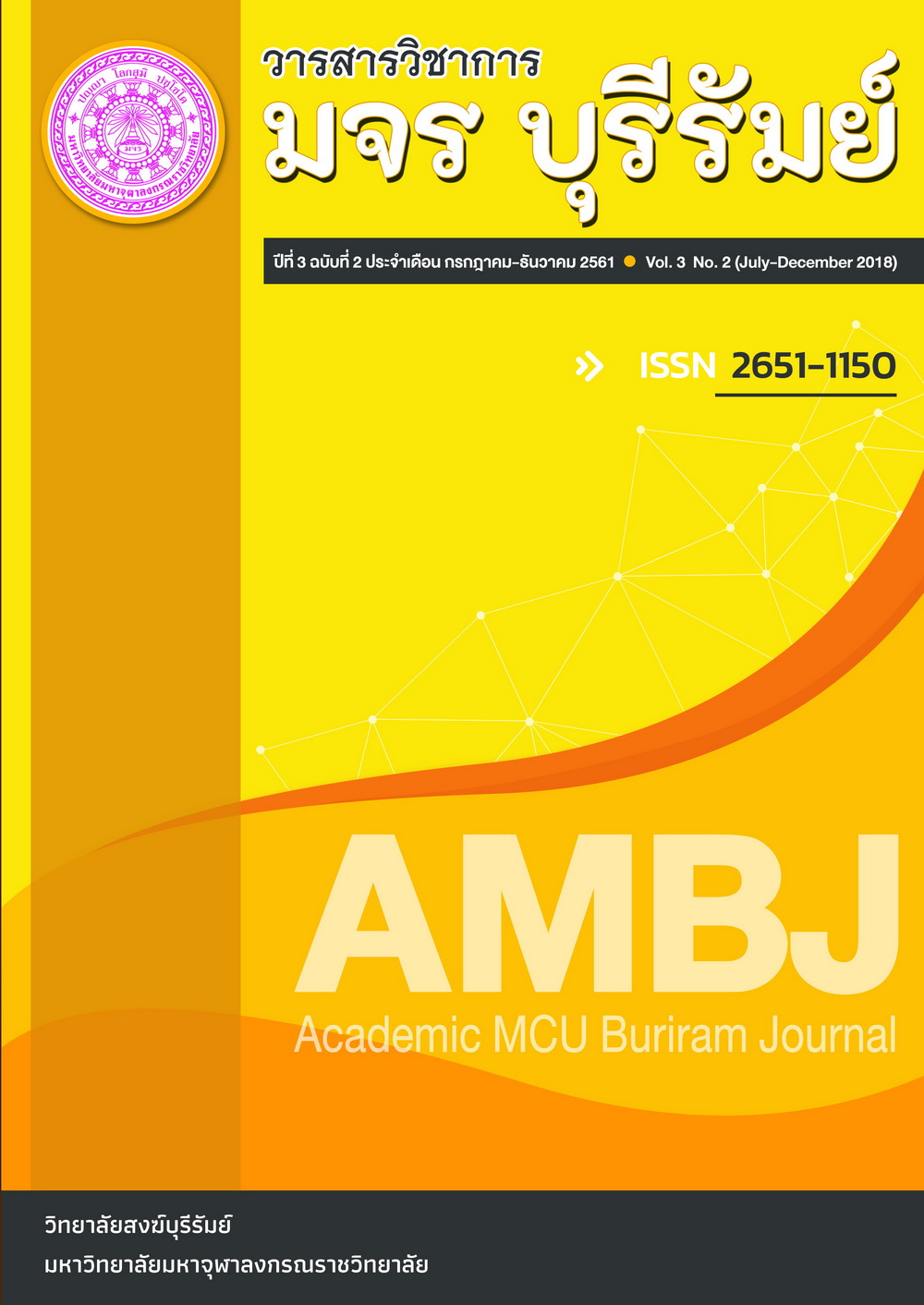Application of the Three Buddhist Principles of Training (Tisikkhā) for Sustainable Development
Keywords:
Buddhism, Three Buddhist Principles of Training (Tisikkhā), Four Buddhist Aspects of Self–development (Bhāvanā 4), Sustainable Development, Natural EnvironmentAbstract
Sustainable development is an economic development which provides an approach to raise awareness on the environment, social and economic limitations, and to create equal opportunity for the future generations, According to Buddhism, Sustainable Development needs a hand-in-hand control of both physical and mental behaviors along with the Middle Path or Majjhimāpatipadā, which could be classified in to the Three Buddhist Principles of Training or Tisikkhā, namely, Adhisīlasikkhā, Adhicittasikkhā and Adhipaññāsikkhā. The training procedures based on these three principles are evaluated with the Four Buddhist Aspects of Self–development or Bhāvanā 4 that consists of Kāya–bhāvanā, Sila–bhāvanā, Citta–bhāvanā and Paññā–bhāvanā, in order to develop physical and mental behaviors as well as perfect understanding oneself and nature. One should realize the true meaning of life and the nature of all with non–violence. That is the focus of sustainable development.
Downloads
Published
How to Cite
Issue
Section
License
ทัศนะและความคิดเห็นที่ปรากฏในบทความวารสารฉบับนี้ถือเป็นความรับผิดชอบของผู้เขียนบทความนั้น ไม่ถือเป็นทัศนะและความรับผิดชอบของบรรณาธิการ





